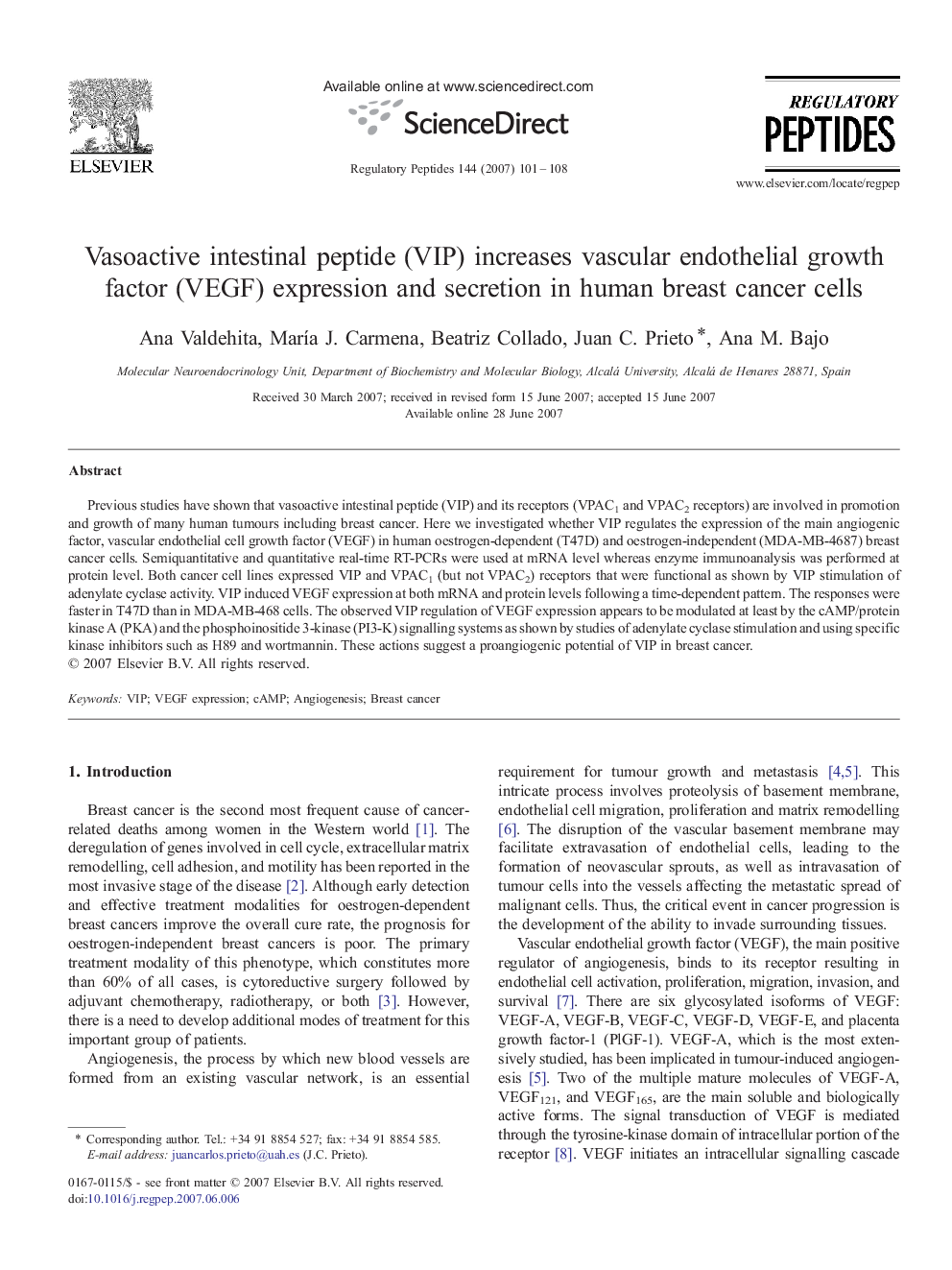| Article ID | Journal | Published Year | Pages | File Type |
|---|---|---|---|---|
| 2023354 | Regulatory Peptides | 2007 | 8 Pages |
Previous studies have shown that vasoactive intestinal peptide (VIP) and its receptors (VPAC1 and VPAC2 receptors) are involved in promotion and growth of many human tumours including breast cancer. Here we investigated whether VIP regulates the expression of the main angiogenic factor, vascular endothelial cell growth factor (VEGF) in human oestrogen-dependent (T47D) and oestrogen-independent (MDA-MB-4687) breast cancer cells. Semiquantitative and quantitative real-time RT-PCRs were used at mRNA level whereas enzyme immunoanalysis was performed at protein level. Both cancer cell lines expressed VIP and VPAC1 (but not VPAC2) receptors that were functional as shown by VIP stimulation of adenylate cyclase activity. VIP induced VEGF expression at both mRNA and protein levels following a time-dependent pattern. The responses were faster in T47D than in MDA-MB-468 cells. The observed VIP regulation of VEGF expression appears to be modulated at least by the cAMP/protein kinase A (PKA) and the phosphoinositide 3-kinase (PI3-K) signalling systems as shown by studies of adenylate cyclase stimulation and using specific kinase inhibitors such as H89 and wortmannin. These actions suggest a proangiogenic potential of VIP in breast cancer.
